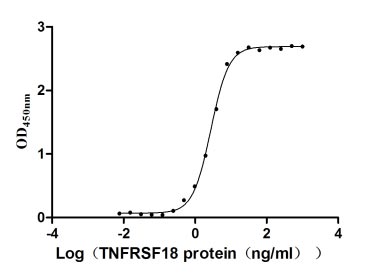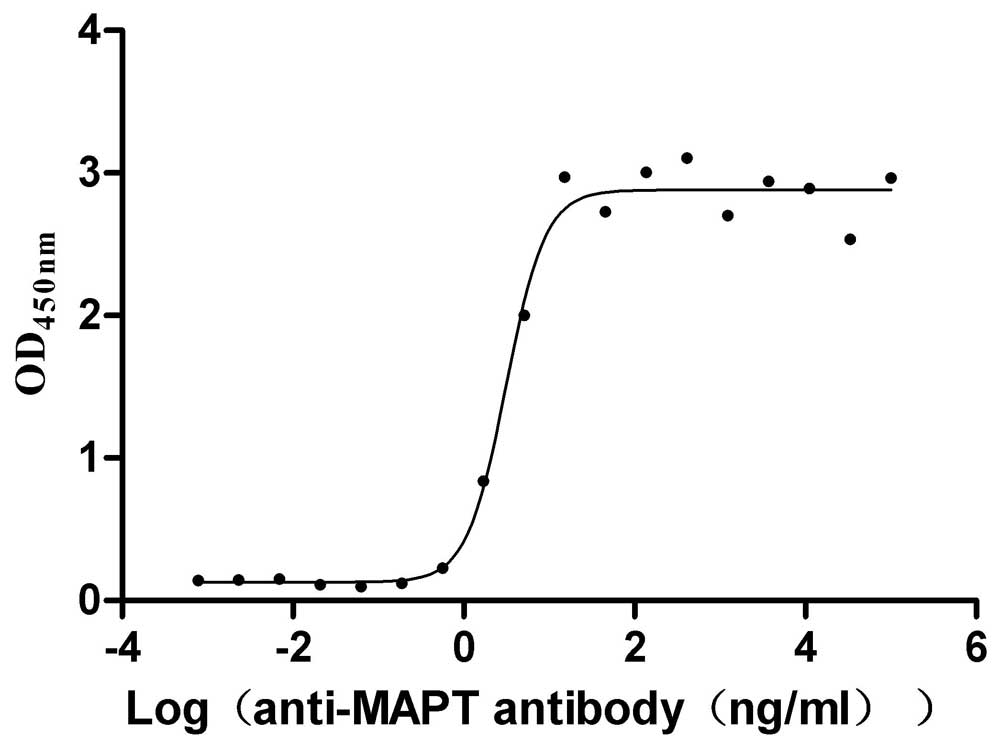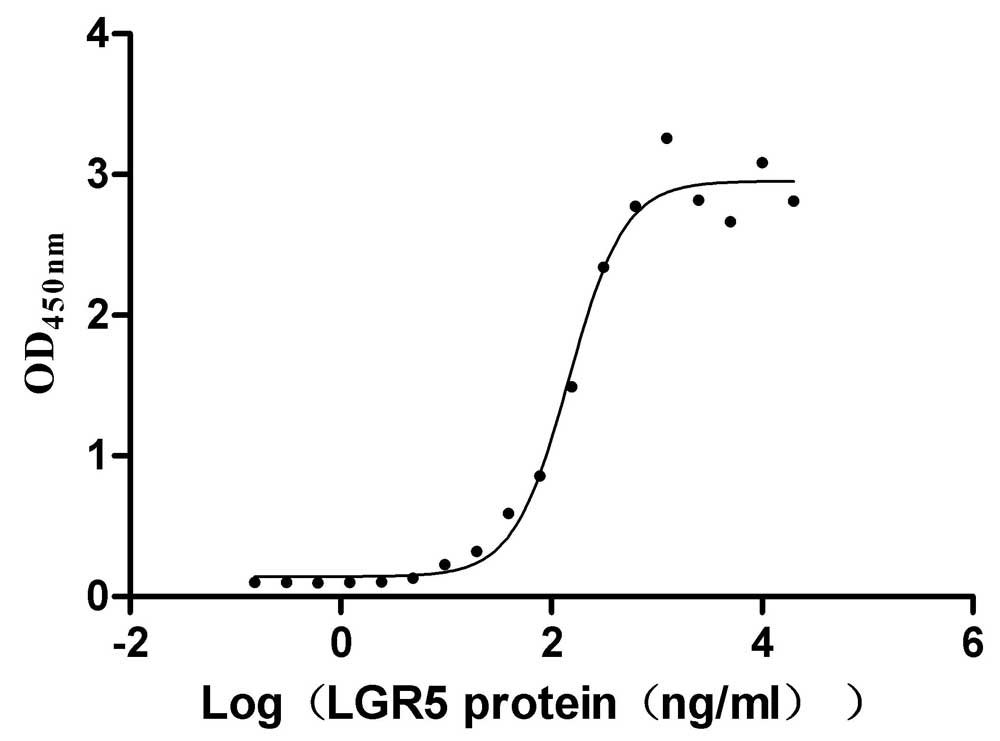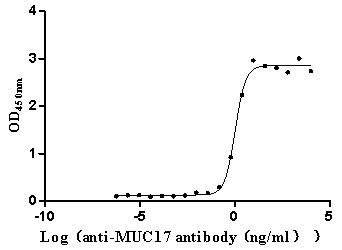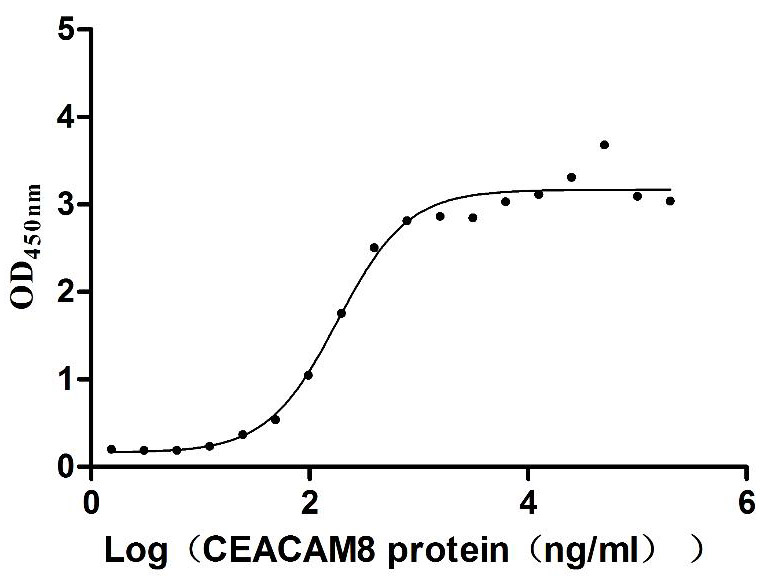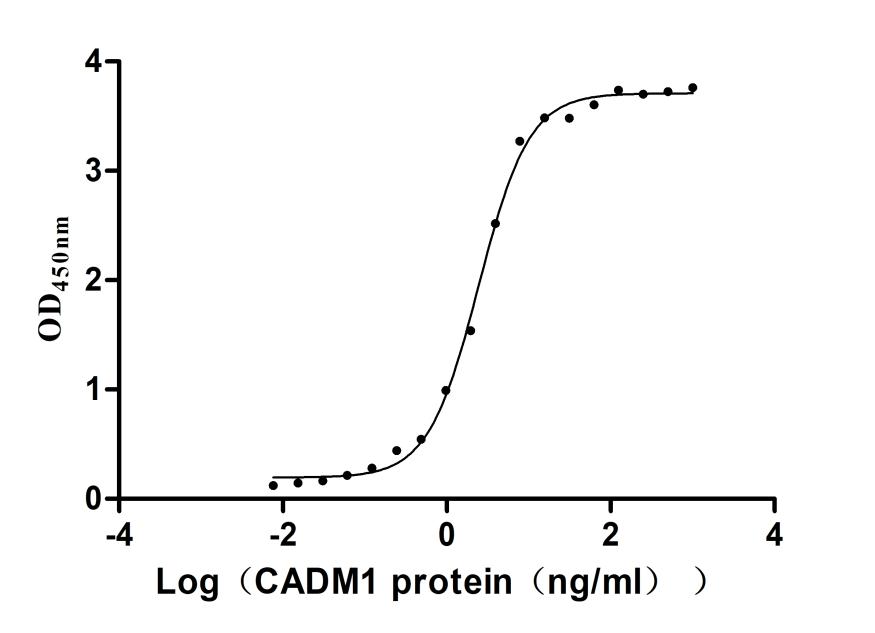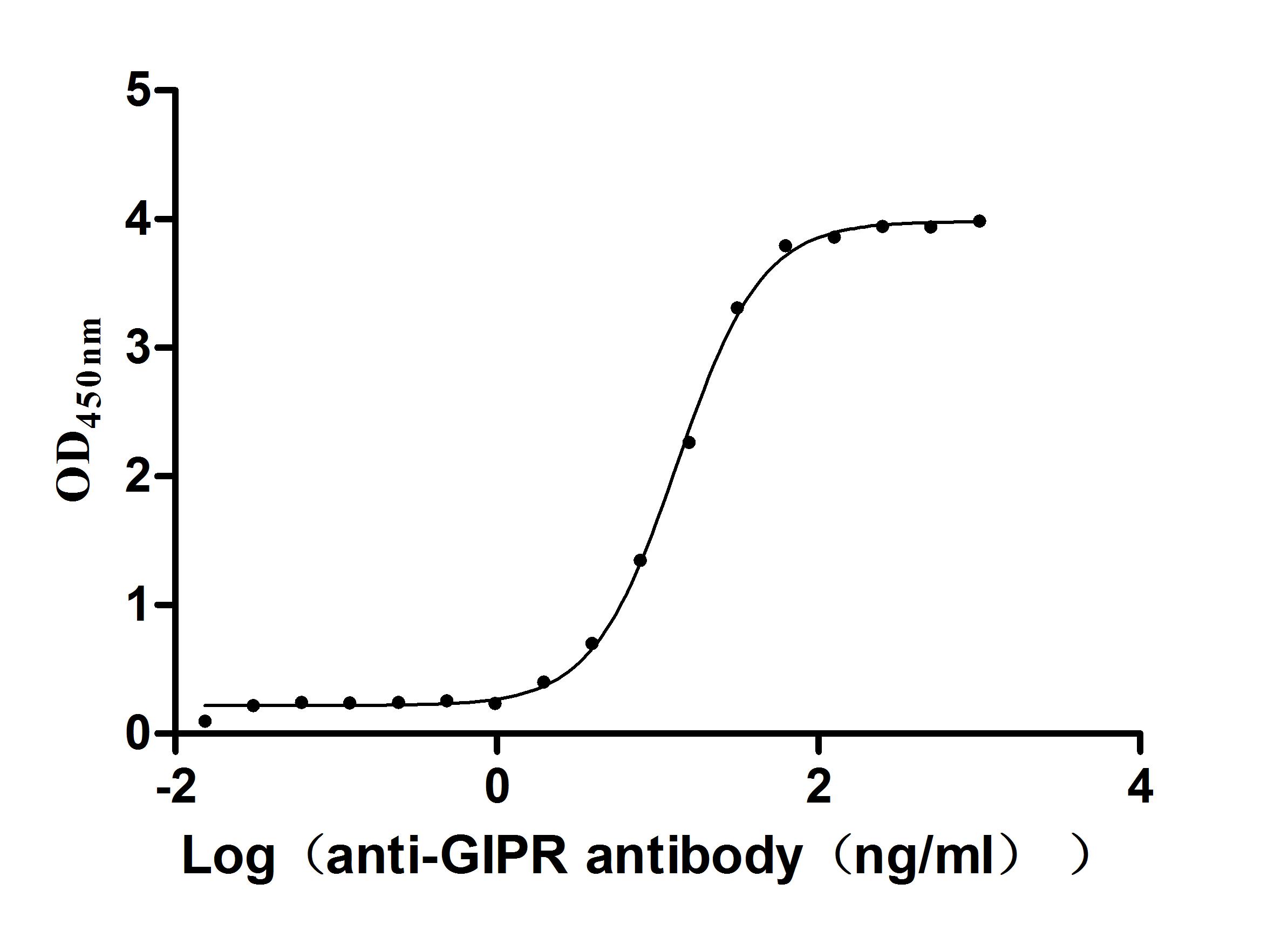Recombinant Mouse Long-chain-fatty-acid--CoA ligase 1 (Acsl1)
-
中文名稱:Recombinant Mouse Long-chain-fatty-acid--CoA ligase 1(Acsl1)
-
貨號:CSB-CF001191MO
-
規(guī)格:
-
來源:in vitro E.coli expression system
-
其他:
產(chǎn)品詳情
-
基因名:
-
Uniprot No.:
-
別名:Acsl1; Acsl2; Facl2; Long-chain-fatty-acid--CoA ligase 1; Arachidonate--CoA ligase; Long-chain acyl-CoA synthetase 1; LACS 1; Phytanate--CoA ligase
-
種屬:Mus musculus (Mouse)
-
蛋白長度:full length protein
-
表達(dá)區(qū)域:1-699
-
氨基酸序列MEVHELFRYFRMPELIDIRQYVRTLPTNTLMGFGAFAALTTFWYATRPKALKPPCDLSMQSVEIAGTTDGIRRSAVLEDDKLLVYYYDDVRTMYDGFQRGIQVSNNGPCLGSRKPNQPYEWISYKEVAELAECIGSGLIQKGFKPCSEQFIGLFSQNRPEWVIVEQGCFSYSMVVVPLYDTLGADAITYIVNKAELSVIFADKPEKAKLLLEGVENKLTPCLKIIVIMDSYGSDLVERGKKCGVEIISLKALEDLGRVNRVKPKPPEPEDLAIICFTSGTTGNPKGAMITHQNIINDCSGFIKATESAFIASTDDVLISFLPLAHMFETVVECVMLCHGAKIGFFQGDIRLLMDDLKVLQPTIFPVVPRLLNRMFDRIFGQANTSLKRWLLDFASKRKEAELRSGIVRNNSLWDKLIFHKIQSSLGGKVRLMITGAAPVSATVLTFLRTALGCQFYEGYGQTECTAGCCLSLPGDWTAGHVGAPMPCNYVKLVDVEEMNYLASKGEGEVCVKGANVFKGYLKDPARTAEALDKDGWLHTGDIGKWLPNGTLKIIDRKKHIFKLAQGEYIAPEKIENIYLRSEAVAQVFVHGESLQAFLIAVVVPDVESLPSWAQKRGLQGSFEELCRNKDINKAILDDLLKLGKEAGLKPFEQVKGIAVHPELFSIDNGLLTPTLKAKRPELRNYFRSQIDELYATIKI
Note: The complete sequence may include tag sequence, target protein sequence, linker sequence and extra sequence that is translated with the protein sequence for the purpose(s) of secretion, stability, solubility, etc.
If the exact amino acid sequence of this recombinant protein is critical to your application, please explicitly request the full and complete sequence of this protein before ordering. -
蛋白標(biāo)簽:N-terminal 10xHis-tagged
-
產(chǎn)品提供形式:Liquid or Lyophilized powder
Note: We will preferentially ship the format that we have in stock, however, if you have any special requirement for the format, please remark your requirement when placing the order, we will prepare according to your demand. -
緩沖液:Lyophilized from Tris/PBS-based buffer, 6% Trehalose, pH 8.0
-
儲存條件:Store at -20°C/-80°C upon receipt, aliquoting is necessary for mutiple use. Avoid repeated freeze-thaw cycles.
-
保質(zhì)期:The shelf life is related to many factors, storage state, buffer ingredients, storage temperature and the stability of the protein itself.
Generally, the shelf life of liquid form is 6 months at -20°C/-80°C. The shelf life of lyophilized form is 12 months at -20°C/-80°C. -
貨期:Basically, we can dispatch the products out in 1-3 working days after receiving your orders. Delivery time may differ from different purchasing way or location, please kindly consult your local distributors for specific delivery time.Note: All of our proteins are default shipped with normal blue ice packs, if you request to ship with dry ice, please communicate with us in advance and extra fees will be charged.
-
注意事項(xiàng):Repeated freezing and thawing is not recommended. Store working aliquots at 4°C for up to one week.
-
Datasheet & COA:Please contact us to get it.
相關(guān)產(chǎn)品
靶點(diǎn)詳情
-
功能:Catalyzes the conversion of long-chain fatty acids to their active form acyl-CoAs for both synthesis of cellular lipids, and degradation via beta-oxidation. Preferentially uses palmitoleate, oleate and linoleate. Preferentially activates arachidonate than epoxyeicosatrienoic acids (EETs) or hydroxyeicosatrienoic acids (HETEs).
-
基因功能參考文獻(xiàn):
- ACSL1-mediated metabolic trapping of exogenous LCFA accelerates LCFA uptake rates, albeit to a lesser extent in females, which distinctly affects LCFA trafficking to acyl intermediates but not triglyceride storage or mitochondrial oxidation and is affected by female sex hormones. PMID: 26995156
- Data (including data from studies in cell line from knockout mice) suggest high incorporation of long-chain fatty acids, partly mediated by Acsl1, plays role in supply of octanoic acid for ghrelin acylation/lipoylation in ghrelin-producing cells. PMID: 26991015
- Acyl-CoA synthetase 1 deficiency alters cardiolipin species and impairs mitochondrial function PMID: 26136511
- ACSL1 is a programmable mediator of insulin sensitivity and cellular lipid content. PMID: 25915184
- long-chain acyl-CoA synthetase isoform 1 (ACSL1) deficiency in the heart activated mTORC1, thereby inhibiting autophagy and increasing the number of damaged mitochondria. PMID: 26220174
- Acsl1(M-/-) mice were more insulin sensitive, and, during an overnight fast, their respiratory exchange ratio was higher, indicating greater glucose use and during endurance exercise, Acsl1(M-/-) mice ran only 48% as far as controls. PMID: 25071025
- These data indicate that Acsl1-deficiency causes diastolic dysfunction and that mTOR activation is linked to the development of cardiac hypertrophy in Acsl1(H-/-) mice. PMID: 24631848
- Data indicate that the expression levels of ACSL1 and its metabolite triglyceride levels were remarkably increased in hepatitis B virus X protein (HBx)-induced liver cancer tissues from the HBx transgenic mice model. PMID: 24462768
- Increases understanding of the role of ACSL1 in monocytes/macrophages in inflammation and diabetes-accelerated atherosclerosis offers hope for new treatment to combat diabetic vascular disease[review] PMID: 23153419
- Acyl-CoA synthetase 1 is induced by Gram-negative bacteria and lipopolysaccharide and is required for phospholipid turnover in stimulated macrophages PMID: 23426369
- Endothelial ACSL1 is not required for inflammatory and apoptotic effects of a saturated fatty acid-rich environment. PMID: 23241406
- the reduced ABCA1 and cholesterol efflux in macrophages subjected to conditions of diabetes and elevated fatty load may, at least in part, be mediated by ACSL1 PMID: 22020260
- Acsl1 knockdown stimulated expression of lipogenic genes. PMID: 22445754
- ACSL1 plays a critical role by promoting the inflammatory phenotype of macrophages associated with type 1 diabetes PMID: 22308341
- Acsl1 is required for heart fatty acid oxidation. Heart-specific Acsl1 deficiency causes cardiac hypertrophy. PMID: 21245374
- Acsl1(A-/-) adipocytes incorporated [(14)C]oleate into glycerolipids normally, but fatty acid oxidation rates were 50%-90% lower than in control adipocytes and mitochondria. PMID: 20620995
- O-GlcNAc interrupts a known interaction between Sp1 and sterol regulatory element binding protein 2 (SREBP2), thereby inhibiting expression of the gene encoding acetyl-CoA synthetase 1, which is involved in lipid synthesis. PMID: 20138838
- Normoleptinemic control ACS-transgenic mice developed severe dilated cardiomyopathy with thickened left ventricular walls and profound impairment of systolic function on echocardiogram PMID: 15347805
- Together, our findings suggest that a constitutive interaction between FATP1 and ACSL1 contributes to the efficient cellular uptake of LCFAs in adipocytes through vectorial acylation. PMID: 16357361
- primary role of ACSL1 in adipocytes not in control of lipid influx, as previously considered, but in lipid efflux and fatty acid-induced insulin resistance PMID: 19429676
- Acs as a cancer survival factor: its inhibition enhances the efficacy of etoposide. PMID: 19459852
- Results describe a knock-out model of acyl-CoA synthetase-1 (ACSL1) and its effects in liver and in whole body metabolism. PMID: 19648649
顯示更多
收起更多
-
亞細(xì)胞定位:Mitochondrion outer membrane; Single-pass type III membrane protein. Peroxisome membrane; Single-pass type III membrane protein. Microsome membrane; Single-pass type III membrane protein. Endoplasmic reticulum membrane; Single-pass type III membrane protein.
-
蛋白家族:ATP-dependent AMP-binding enzyme family
-
數(shù)據(jù)庫鏈接:
Most popular with customers
-
Recombinant Human Tumor necrosis factor receptor superfamily member 18 (TNFRSF18), partial (Active)
Express system: Mammalian cell
Species: Homo sapiens (Human)
-
Recombinant Macaca mulatta Microtubule-associated protein tau (MAPT) (Active)
Express system: Mammalian cell
Species: Macaca mulatta (Rhesus macaque)
-
Recombinant Human R-spondin-1 (RSPO1), partial (Active)
Express system: Mammalian cell
Species: Homo sapiens (Human)
-
Recombinant Human Mucin-17 (MUC17), partial (Active)
Express system: Mammalian cell
Species: Homo sapiens (Human)
-
Recombinant Human Carcinoembryonic antigen-related cell adhesion molecule 6 (CEACAM6) (Active)
Express system: Mammalian cell
Species: Homo sapiens (Human)
-
Recombinant Human Cytotoxic and regulatory T-cell molecule (CRTAM), partial (Active)
Express system: Mammalian cell
Species: Homo sapiens (Human)
-
Recombinant Macaca fascicularis Gastric inhibitory polypeptide receptor (GIPR), partial (Active)
Express system: yeast
Species: Macaca fascicularis (Crab-eating macaque) (Cynomolgus monkey)


